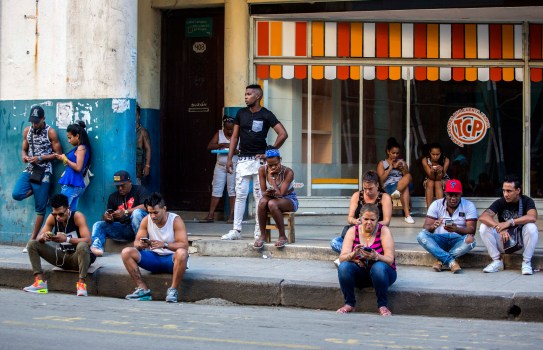Agustin Ramirez, a technician at a mobile repair shop in the Havana district of 10 de Octubre, tried in vain to download a number of apps because of the U.S. embargo on the island.
Ramirez, 33, told Xinhua that the embargo violates the Cubans’ rights to free access to Internet information and data.
“It affects the quality of the service we deliver to our clients,” he said. “In addition, it limits our knowledge about the latest developments in the field of technology.”
Meanwhile, Caridad Diaz, a 45-year-old civil engineer, said that the embargo denies Cubans access to the digital platform Zoom.
“It gets difficult whenever we want to hold an online meeting or video chat with colleagues from across the world,” she said. “It is a U.S. politically-motivated decision.”
The current U.S. administration blocks the island’s access to international optical fiber networks, according to Cuban Deputy Minister of Communications Wilfredo Gonzalez.
“By doing so, the U.S. government violates the rights of Cubans to this service while harming the international connectivity capacity of the country,” said Gonzalez.
The U.S. embargo also prohibits Cuban telecom company ETECSA from doing business with U.S. internet providers, he said.
Cuba massively extended Internet access in 2015 after opening Wifi hotspots in public areas across the country’s 15 provinces and the Isle of Youth special municipality. In 2018, the island started mobile Internet service.
In addition, more than 70 percent of the country’s 11.2 million population is connected to the Internet, the Cuban Ministry of Communications said.
The U.S. administration should lift all restrictions for Cubans so that they can have easier access to the Internet, said University student Dayron Abreu.
“By limiting Cuban people’s access to different Internet services and platforms, the U.S. government demonstrates one more time they don’t care about the living conditions of Cubans,” he said.










